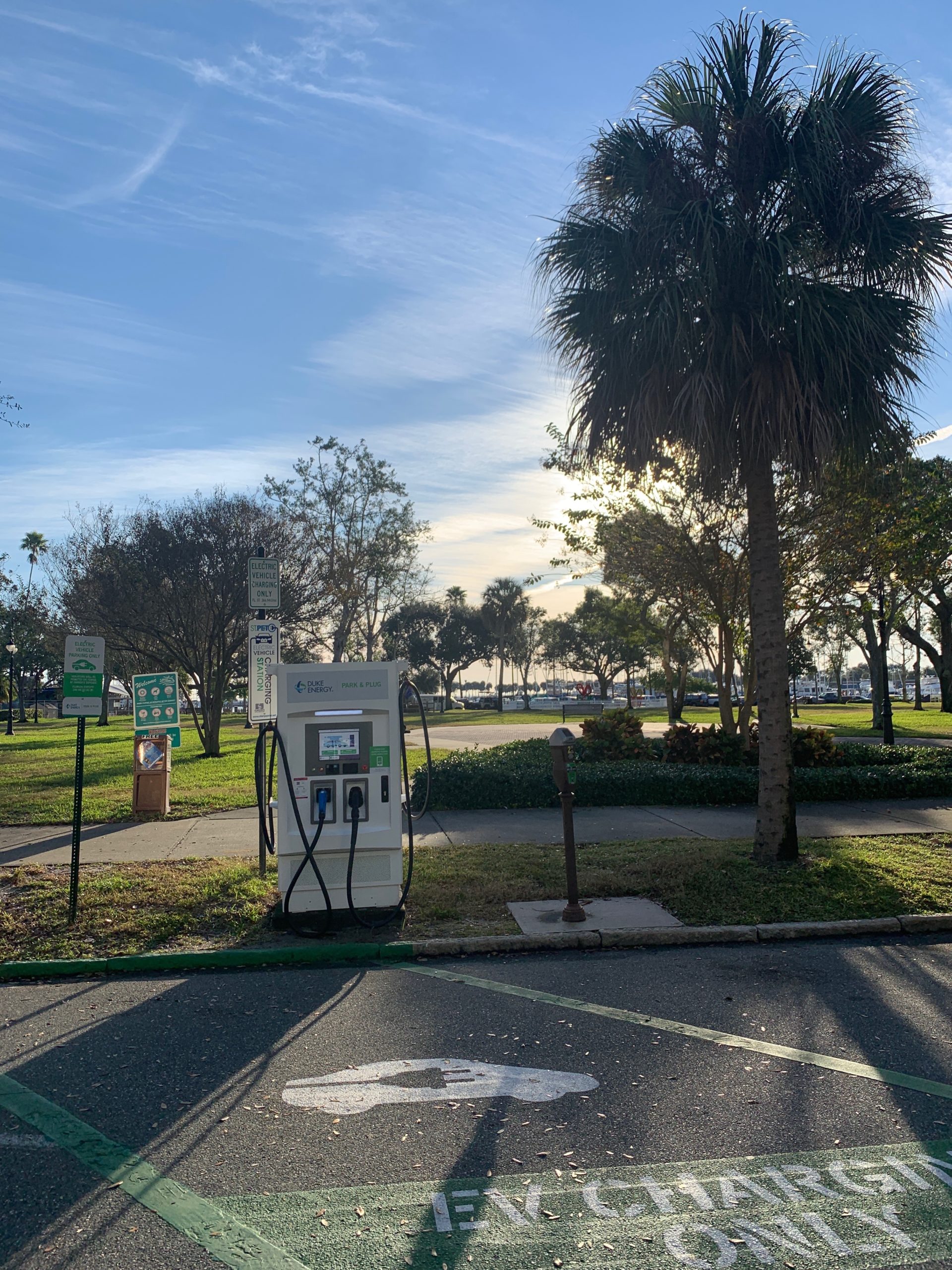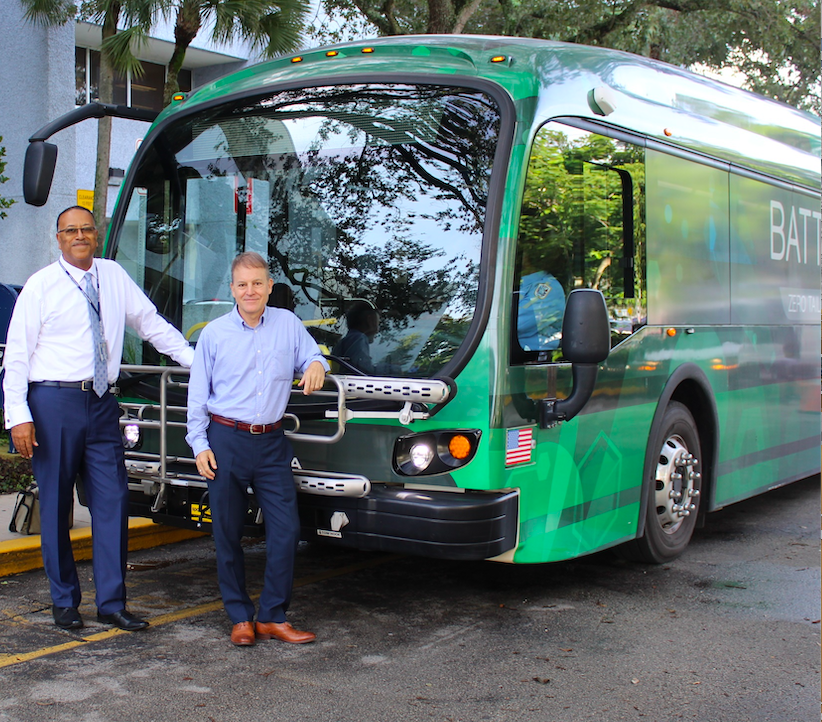Since this summer, Southern Alliance for Clean Energy has been meeting with local leaders from across the state of Florida on the benefits of electric transportation. These meetings have allowed us to better understand how local governments are prioritizing electric transportation, to make policy recommendations, and to share best practices from their counterparts across the Sunshine State.
Dory Larsen | December 9, 2019 | Clean Transportation, Electric Vehicles, FloridaThis summer Electrify the South (the electric transportation arm of Southern Alliance for Clean Energy) launched a new initiative to better inform elected officials and the staff of Florida’s coastal communities that are vulnerable to the effects of offshore oil drilling on the benefits of electric transportation. Our Protect Our Coast: Drive Electric website and our corresponding toolkit layout the benefits of electric transportation (ET) and show how increasing electric transportation can reduce the demand for offshore oil while also reducing air pollution, protecting public health, and saving money with lower fuel and maintenance costs.

Turning Awareness Into Action
Many of the folks we reached out to in these vulnerable Florida coastal cities and counties already understand the significant risks an offshore oil spill would pose to their local economies and environments. Most have already taken steps to oppose offshore drilling or seismic blasting (a precursor to oil drilling). Our initiative aims to pair this opposition to offshore oil drilling with other actions that can actively support ET. The Protect Our Coast: Drive Electric toolkit includes policy recommendations with links to Ordinances and Resolutions previously adopted by other municipalities, that can serve as guidance for other cities and counties and is formatted into eight categories.

Our initial efforts were focused on eighteen strategically chosen cities and counties. We sent them our toolkit electronically, along with an electrification inventory in which they could itemize what they had already done and note the next steps they were already interested in taking. Of this initial eighteen, over half were willing to sit down with us in person to discuss the policy options in the toolkit. These meetings gave city and county leaders a chance to learn more about the benefits of electrifying transportation in their communities and provided exposure to policies taken by other communities to increase electric vehicle (EV) adoption. It also gave us a chance to hear what they have already accomplished in the ET space.
EV Policy Toolkit, a Living Document, and Compass for ET Opportunities
As a result of these first-round meetings, we’ve been updating the policy toolkit to include what we’ve learned and to share best practices. For example, in June 2019, Sarasota’s City Manager issued a directive to organize a strategy and plan to have at least 90% of all city vehicle purchases or leases be of EVs within five years. Broward County passed a Resolution committing to “more ambitious local and regional climate action” including the purchase of strictly zero-emissions electric fleet and transit vehicles by 2030.
In the fall of 2019, we expanded our efforts to include outreach to an additional nineteen cities and counties. Again, that outreach yielded in-person meetings with over half of the respondents. During these interactions, we also had the opportunity to share information about EV infrastructure and new programs rolling out, including Florida Power & Light’s EVolution program designed to increase charging stations to over 100 locations within their service territory (similar to Duke Energy’s Park and Plug program). Counties have also found ways to boost the number of charging stations, for example, Sarasota County’s ChargeUP! program which uses pollution mitigation funds to cost-share infrastructure.
Some municipalities we have encountered are unaware of the opportunities available, including the VW Settlement mitigation funding. Others, like Miami-Dade and Broward Counties, are well on their way to transitioning their transit fleet and plan to augment their plans using the funding. Last year, Miami-Dade County passed a Resolution that at least 50% of the transit bus fleet would be electric by 2035. Read more about the Broward County’s resolution on our blog: All Aboard: Broward County Sets Goal to Transition to All Electric Buses.

Another lesson we have learned is that there is a wide range in how aggressive and how far along various cities and counties are in transitioning to ET. SACE is encouraging policy changes by offering ride and drives to provide decision-makers and leaders with first-hand experience at driving electric, yielding plenty of “a-ha” moments. We participated in Florida’s Climate and Energy Summit hosted by the Office of Energy and enabled several thought leaders to drive electric for the first time! These interactions allow us to open the door to conversations about policies that can increase electric vehicle adoption or infrastructure, challenge misconceptions, debunk myths and strengthen our advocacy.
Live on the Coast? Help Spread the Word!
The word is getting out. As Protect Our Coast: Drive Electric grows organically by word of mouth, we continue to add new city partners and help educate the staff and citizens about the environmental, economic, and public health benefits that result from electric transportation.